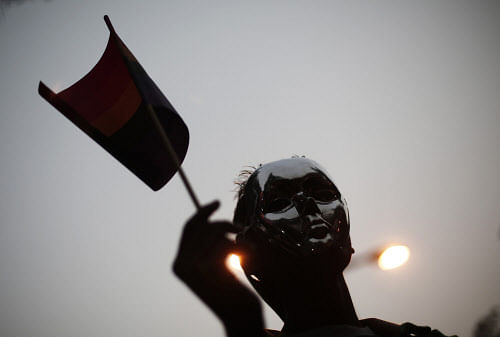
The Supreme Court's recent verdict upholding Section 377 of the IPC has drawn flak from psychiatrists who said both heterosexual and homosexual behaviours are normal and natural aspects of human sexuality.
"Despite the social stereotype sentiments that portray lesbian, gay and bisexual people as disturbed, several decades of research and clinical experience have led all mainstream medical and mental health organisations to conclude that these orientations represent normal forms of human experience and bonding.
"That is why, mainstream organisations such as America Psychiatric Association long ago abandoned classifications of homosexuality as a mental disorder," Sunil Mittal, Director of CIMBS (Cosmos Institute of Mental Health and Behavioural Sciences) and Delhi Psychiatry Centre (DPC), said.
He said research has found no inherent association between homosexual orientations and psychopathology.
"The problem with Section 377 is one of definition. The phrase 'order of nature' has largely attained a traditional and patriarchal meaning as understood by the society. One of the arguments is that a human being's anatomy 'naturally' permits intercourse through means other than vaginal penetration and thus, those means could be interpreted as being 'the order of nature' too," he said.
Although much research has examined the possible genetic, hormonal, developmental, social and cultural influences on sexual orientation, no findings have emerged that permit scientists to conclude that sexual orientation is determined by any particular factor or factors.
Deccan Herald is on WhatsApp Channels| Join now for Breaking News & Editor's Picks